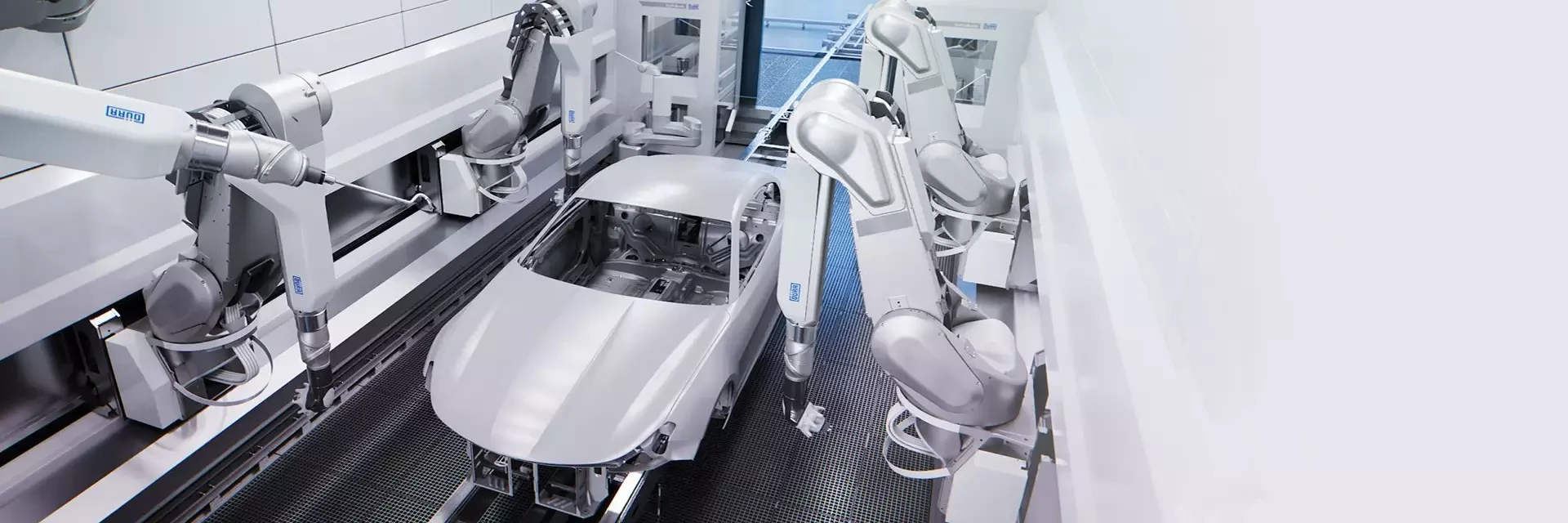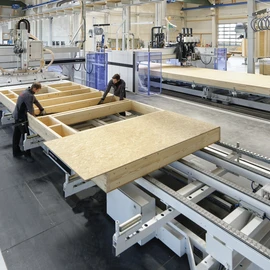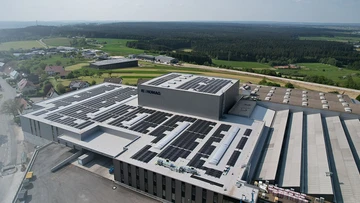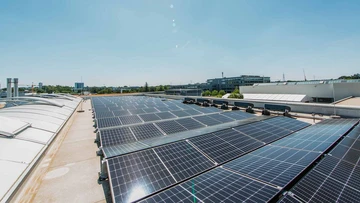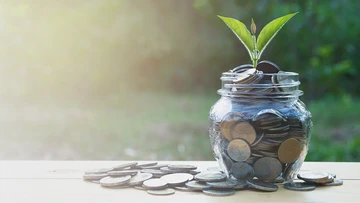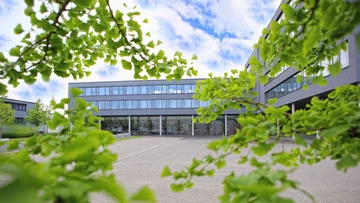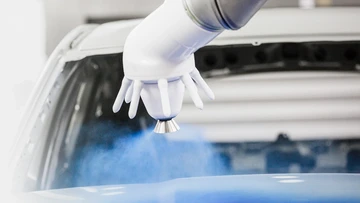The sustainability report focuses on the company’s commitment to combating climate change. The climate strategy developed for this purpose has been scientifically reviewed by the Science Based Targets initiative and contributes to the 1.5°C target under the Paris Climate Agreement. Among other things, the Dürr Group plans to reduce greenhouse gas emissions which mainly result from site operations and the purchase of energy (so-called Scope 1 and Scope 2 emissions) by 70% by 2030 compared to the year 2019. Compared to the previous year, these emissions fell by almost 2% in 2021, and by almost 15% to around 48,000 metric tons of CO2 equivalents compared to the year 2019, despite the acquisition of new subsidiaries. This was due to lower consumption of conventional electricity as well as reduced emissions from the use of the vehicle fleet. This year, the emissions in Scope 1 and Scope 2 are expected to decline even more steeply. To this end, all German locations have been using only green electricity and green gas since the beginning of the year. In addition, photovoltaic systems were installed in Germany and China and the charging infrastructure for battery vehicles was expanded.
The mechanical and plant engineering firm intends to reduce greenhouse gas emissions from the supply chain and the use of sold products and systems by 15% by 2030 (compared to 2019). These emissions are referred to as Scope 3 emissions. In 2021, 85% of the greenhouse gas emissions were attributable to the use phase of the products. In order to reduce Scope 3 emissions, the Group is lowering the energy consumption of its products and offering electricity-powered alternatives for products that previously used gas. Furthermore, the company advises its customers on how to make their manufacturing operations more climate-friendly by using resource-efficient systems. To reduce Scope 3 emissions, the Dürr Group is also focusing on improvements in the supply chain. This includes, for example, the establishment of more climate-friendly logistics.
“The new sustainability report shows that we are on the right track with our strategy. We recognized the trend toward sustainable production systems at an early stage and moved the development of energy-efficient and resource-saving technologies into the focus of our innovation management. We are thus well positioned for the climate-neutral future of mechanical and plant engineering,” says Dr. Jochen Weyrauch, CEO of Dürr AG. “In addition, our technologies are essential for manufacturing products for a CO2-neutral society – be it systems for the construction of climate-friendly timber houses, production technology for electric cars or solutions for electrode coating.”
The areas of painting, battery production and woodworking technology also provide examples of environmentally sustainable business activities in line with the EU Taxonomy. As one of only four companies in the DAX family, the Dürr Group has published voluntary disclosures on taxonomy-aligned sales, capital expenditures and operating expenses for the 2021 fiscal year. Accordingly, in 2021, 15.1% of sales were taxonomy-aligned; this means that behind them are products that make a significant contribution to at least one of six environmental goals. Moreover, minimum social requirements must also be met.
The → Dürr Group’s sustainability report is based on the requirements of the “Core” option of the Global Reporting Initiative (GRI). The GRI reporting standards are used worldwide and, particularly in Europe, represent the predominant set of rules for sustainability reporting. The report also follows the disclosure recommendations of the Task Force on Climate-related Financial Disclosures (TCFD), an expert commission of the Financial Stability Board of the G20 countries. For the first time, it also includes a progress report on the implementation of the principles of the United Nations Global Compact.
